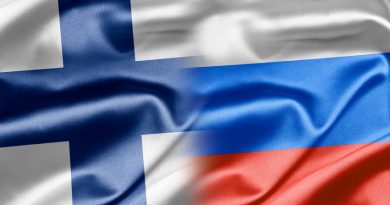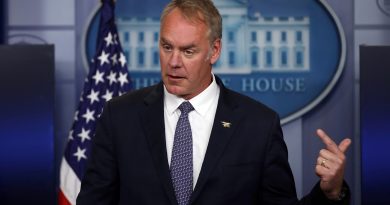Blog: The British Invasion – The Arctic Circle and observer states

There was a lot of buzz around new Observers to the Arctic Council leading up to the 2013 Ministerial in Kiruna, mainly related to the fact that 1) most of them were Asian; and 2) Canada and Russia were very lukewarm on the EU’s application.
It became de rigueur for a while to have Chinese and EU speakers at Arctic conferences talk about why and how they were interested in the Arctic Council, and what it meant for the Arctic region that non-Arctic interest in its work was spiking.
But if you haven’t given Observers a second thought since decisions on their acceptance were made at Kiruna you would not be alone. New stories have emerged, from the effects of Ukraine on regional cooperation and the IMO polar shipping code, to debate on the Canadian Chairmanship agenda and speculation on the upcoming American one. The Observer question has become old news.
Spotlight on observer states
At the Arctic Circle conference held in Reykjavik, Iceland last week, however, I was reminded that even if some of us haven’t been thinking much about the Observer states, they have been thinking about the Arctic. France and Japan held country sessions. The EU, Korea and Italy provided country reports. Germany and Singapore sent official greetings. China trumpeted its Nordic cooperation initiative. But the most – how shall I put this – surprising Observer state intervention came from Great Britain.
Even before the Arctic Circle formally started, one got a sense of the size of the British presence, and for good reason. From 3 representatives in 2013, the UK brought a delegation of 50 to this year’s event, by far the biggest delegation of the conference for any state or non-state actor. They all proudly wore Remembrance Day poppies on their lapels, which served to reinforce the unique degree of their presence.
But it was Britain’s plenary session that really made an impression. Aides began by putting up pop-ups from the country’s “GREAT Britain” marketing campaign on the stage: GREAT research, GREAT technology and so on. Other volunteers raced around the 1000+capacity room handing out the glossiest booklets I’ve ever seen. Was it the UK’s 2013 Arctic Strategy? Descriptions of UK contributions to Arctic science? An update on the work of the House of Lords Committee on the Arctic? No. It contained nothing less and nothing more than the biographies and abstracts of the 29 British presenters at conference plenaries and breakout sessions at Arctic Circle.
In the meantime a 25 foot Union Jack was being projected onto the theatre-sized screen at the Harpa auditorium, a key element in the overall effect of the British invasion of the Arctic Circle. Nine presenters, including four MPs, walked onto the stage and I don’t care who you are, you never want to see nine presenters walking onto the stage for a session at a conference.
Focus: Business
We all enjoyed poking a little fun afterwards at the British spectacle. If some people asked, “what were they thinking?”, then I can suggest it was this: the British organized a presentation designed for a trade mission. In a business-oriented event, the British session might have been impressive, even expected. They imagined an international Arctic conference as one in which to network and drum up business, with a splash of science on the side; for those of us who see Arctic relations differently, it was jarring.
The British were far from the only ones to treat the event as business development. The Quebec Premier and his Minister of Energy and Natural Resources came along to talk about their Plan Nord, a “socially and environmentally responsible economic development project”. One of the French panelists showed an 8 minute Arctic luxury eco-cruise commercial to the delegates. Daewoo presented ice-breaking LNG tankers in its presentation during the Korean panel. Polish deputy economy minister Ilona Antoniszyn-Klik, who attended but did not speak at the Arctic Circle, launched days later a “Go Arctic” campaign to encourage Polish companies to take advantage of growing business opportunities in the region.
Taken together the takeaway was this: Observers have a particular vision of and for the Arctic that is not particularly well aligned with the vision that the Arctic Council has for the region. Sustainable economic development is being promoted by the Arctic Council through the newly established Arctic Economic Council to be sure – but the focus there is much more on local and regional development, jobs, capacity-building, poverty reduction, infrastructure and opportunity. The non-Arctic states seemed to see the region as a run-of-the-mill resource periphery.
Competing models for economic development?
There is nothing inherently wrong with business, economic development, investment, or Trans National Corporations. In fact in most cases they should be welcomed. But the debates and policy-making that have taken place in most of the Arctic states over the past thirty years have set the stage for a different model of economic development in the Circumpolar North. Northern communities will no longer accept a core-periphery model of business development that sees them as little more than a way station on the way to large extractive sites. Devolution, duty to consult, recognition of indigenous rights, and stricter environmental regulations mean that they now have the political power to ensure they benefit more and suffer less from resource development. Much of what the Observer state delegates had to say at the Arctic Circle indicated to me that they were only marginally aware that this evolution had even taken place. If this is representative of the perception those outside the circumpolar region have about Arctic development, then northern communities have good reason to be nervous.
I was actually asked by one of the British delegates what I would do if I represented an Observer state, and wanted to gain influence and advance my interests through the Arctic Council. For what it’s worth, this was my answer: talk to the Permanent Participants. The eight Arctic states have their own priorities and have no need or desire to advance those of other states. The Permanent Participants are equally entitled to advance new activities in the Council but generally far less capable of funding them. I would find out if any of them have under-resourced projects that would be of mutual benefit and on which they may want to partner. This is in fact one of the options being advanced in discussions on the role of Observers in strengthening the PPs capacity in the Arctic Council. I would further caution Observers that if you can’t identify any projects that would be beneficial to both yourself and one of the Permanent Participants, you need to reevaluate your Arctic strategy. Drumming up business is one thing. Playing a constructive role in the Arctic Council and the governance of the Arctic region is another thing altogether. For those Observers interested in the latter, my best suggestion would be to work on fitting in, not standing out.
Related stories from around the North:
Canada: Canada’s Arctic Council leadership gets mixed reviews, Eye on the Arctic
Finland: Ex-President Ahtisaari calls on Finland to join NATO with Sweden, Yle News
Greenland: Greenland urged to work with Arctic Council, CBC News
Iceland: Iceland conference draws on hopes, concerns for changing Arctic, Alaska Dispatch
Norway: Permanent Arctic Council Secretariat opens in Tromso, strengthening Norway’s position in Arctic, Blog by Mia Bennett
Russia: The Arctic Council’s Immunity to Crimean Flu, Blog by Heather Exner-Pirot
Sweden: Feature Interview: Sweden wraps up Arctic Council, Radio Sweden
United States: 10 takeaways from the 2014 Arctic Circle Assembly, Alaska Dispatch



